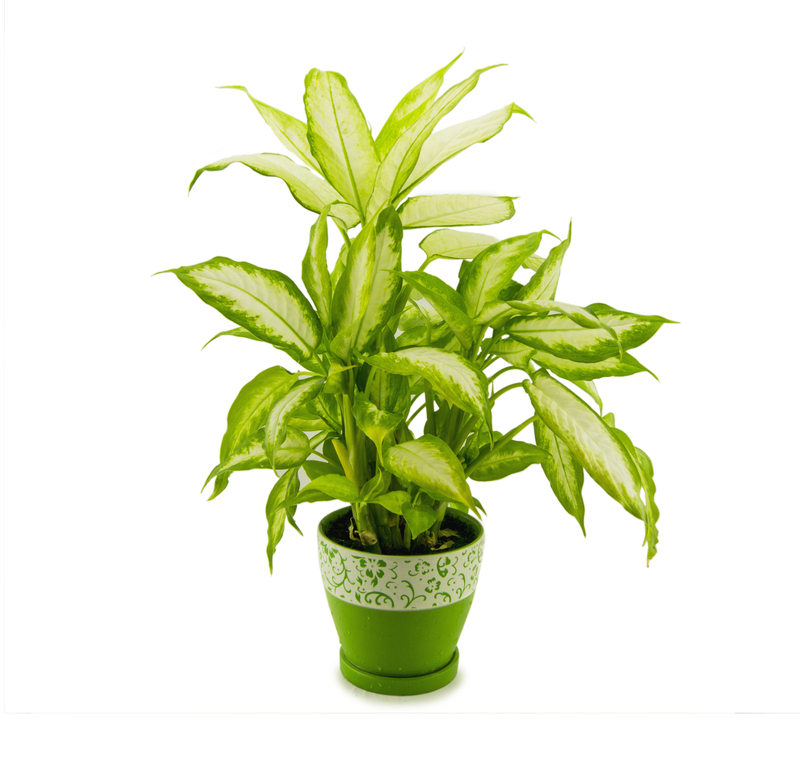3 Innovative Tips for Ultimate Weed Management
Posted on 26/05/2025
3 Innovative Tips for Ultimate Weed Management
Effective weed management is a cornerstone of successful crop production and attractive landscaping. Unchecked weed growth can rob your plants of essential nutrients, water, sunlight, and even harbor pests or diseases. With modern advances and smarter approaches, achieving ultimate weed control is more attainable than ever. In this comprehensive guide, we'll explore three innovative tips that will transform your weed management strategy, with actionable insights to help you maintain healthier crops, gardens, or landscapes.

Why Innovative Weed Management Matters
The fight against weeds is as old as agriculture itself. Traditional tasks like hand-pulling, hoeing, and basic herbicide application are often labor-intensive, costly, and sometimes harmful to the environment. Moreover, many weed species have developed resistance to common herbicides, rendering previous solutions less effective.
To stay ahead, you need modern, creative, and sustainable weed management techniques. Here are three innovative strategies that offer ultimate weed suppression, environment-friendly outcomes, and improved overall plant health.
1. Smart Mulching: Beyond Organic Coverings
Mulching as a Foundation of Weed Control
Mulching is not new--but smart choices in mulch materials and methods can supercharge your weed suppression regime. Mulch provides a physical barrier that inhibits weed seed germination and growth, helping retain soil moisture and regulate temperature. It also enhances your soil's organic content as it breaks down over time.
Taking Mulching to the Next Level
- Biodegradable Mulch Films: Instead of conventional plastic, consider biodegradable mulch films. These are made from plant starches or other organic compounds, breaking down harmlessly into the soil after use. Not only do they suppress weeds effectively, but they also minimize environmental impact, unlike traditional polyethylene films that can linger in the ecosystem for decades.
- Living Mulches: Plant low-growing cover crops (like clover or ryegrass) between main crops. This groundcover competes with weeds for light and space, crowds them out naturally, and even adds valuable nitrogen to the soil through symbiotic processes.
- Mulching with Compost or Newspaper: Using thick layers (at least 3-4 inches) of untreated newspaper or well-aged compost can provide outstanding weed control while feeding soil microbes--keeping beds healthy and nearly weed-free.
Smart mulching is a sustainable, low-cost weed management solution for gardeners and farmers alike. These advanced approaches can reduce the need for chemical herbicides and manual labor while promoting soil health.
2. Precision Weed Detection & Removal Tech
Technology Meets Weed Management
Technology is revolutionizing weed control on every scale. From robotic weeders to drone-assisted monitoring, new tech offers precise, effective, and targeted weed elimination--optimizing resources and reducing environmental damage.
Key Innovations in Precision Weed Detection
- AI-Powered Weed Identification: Machine learning and AI-powered apps or robots can identify and target weeds more accurately than humans. Using high-resolution cameras and complex algorithms, these systems distinguish weed species from crops, enabling site-specific herbicide application, mechanical removal, or laser weeding.
- Robotic Weeders: Autonomous machines roam crop fields, precisely removing, burning, or even zapping weeds with focused lasers. These machines can cover large areas, minimize soil disturbance, and are particularly valuable for organic growers.
- Drone Surveillance & Mapping: Drones equipped with multispectral cameras can survey fields in minutes, identifying weed-infested areas by detecting subtle differences in vegetation reflectivity. Farmers then receive geo-tagged weed maps, allowing for ultra-targeted management.
By embracing precision weed management technology, growers can use less herbicide, save labor, and protect the ecosystem--all while achieving unparalleled weed suppression.
Benefits of Precision Approaches
- Reduced Chemical Use
- Lower Labor Costs
- Less Crop Damage
- Environmental Sustainability
These innovative practices are becoming more accessible and cost-effective, making them a practical option for both commercial and home applications.
3. Integrated Weed Management (IWM) Strategies
The Power of Integration
Integrated weed management isn't a single technique, but the combination of cultural, mechanical, biological, and chemical control strategies. When deployed in concert, these methods multiply each other's effectiveness and reduce the drawbacks of relying on any one approach. IWM is a dynamic, adaptive process tailored to each field or garden's unique needs, weather, and weed pressure.
Elements of Integrated Weed Management
- Crop Rotation: Changing crops each year disrupts weed life cycles and prevents the buildup of specific weed populations. Rotating annuals with perennials or including fallow periods can drastically lower weed seed banks.
- Mechanical Control: Timely tilling, hoeing, or flame-weeding complements chemical and cultural controls. These methods, used judiciously and when weeds are small, minimize disturbance to crops but devastate emerging weeds.
- Cultural Practices: Strategies like planting denser crops, adjusting row spacing, or using resistant crop varieties can enhance crop competition and suppress weed establishment.
- Biological Control: Introducing natural enemies, such as weevils, fungal pathogens, or insects that feed on specific weeds, provides a long-term, sustainable way to limit weed growth without synthetic herbicides.
- Judicious Chemical Use: When necessary, rotate herbicide modes of action to prevent resistance. Apply only where, when, and as needed--ideally paired with other control measures.
Why Adopt Integrated Weed Management?
- Reduces the risk of herbicide-resistant weeds
- Lowers input costs and labor requirements
- Improves soil health and overall system sustainability
- Promotes biodiversity and ecosystem function
IWM offers the pathway to ultimate weed management while preserving productivity and environmental integrity for the long term.

Conclusion: Moving from Routine to Innovative Weed Management
The world of horticulture and agriculture is rapidly evolving, and so are the demands for sustainable, effective weed management solutions. By moving beyond routines and embracing these three cutting-edge strategies--smart mulching, precision technology, and integrated weed management--you can control even the most stubborn weeds with less effort, lower costs, and fewer negative impacts on the earth.
Remember:
- Smart mulching is sustainable and simple, but rapidly advancing in materials and methods.
- Precision detection and removal with AI, robotics, or drones boosts efficiency and cuts chemical usage.
- Integrated management leverages synergy, combining all available tools for unmatched weed suppression.
Are you ready to revolutionize your approach and achieve ultimate weed suppression? Experiment with these innovative tips, stay informed on emerging technologies, and always look for ways to adapt strategies to your unique needs. With commitment and creativity, your fields or gardens can be healthier, more productive, and virtually weed-free.
FAQs: Innovative Weed Management Solutions
What is the most environmentally friendly weed control method?
The most eco-friendly approaches include the use of living mulches, manual removal, and biological controls--especially when part of an integrated weed management plan.
How can technology help in weed control?
Modern technology--including AI, drones, and robotic weeders--enables accurate weed detection and precise removal without harming crops. These methods lower costs, conserve resources, and support sustainable land stewardship.
Is it possible to manage weeds effectively without chemicals?
Absolutely! With innovation in mulching, precise mechanical controls, crop rotations, and biological agents, you can achieve excellent weed suppression--even in organic or low-input systems.
How does crop rotation help with weed management?
Changing crops interrupts weed lifecycles, preventing certain species from dominating and helping maintain a healthier, more diverse ecosystem.
Invest in these innovative weed control strategies today and enjoy healthier plants, cleaner landscapes, and a brighter future for your garden or farm.
Latest Posts
Building a Whimsical Child-Friendly Garden Adventure
Nurturing Nature and Dogs: 20 Gardening Tips for Pet Lovers
Designing a Zen Garden: Your Pathway to Outdoor Peace

